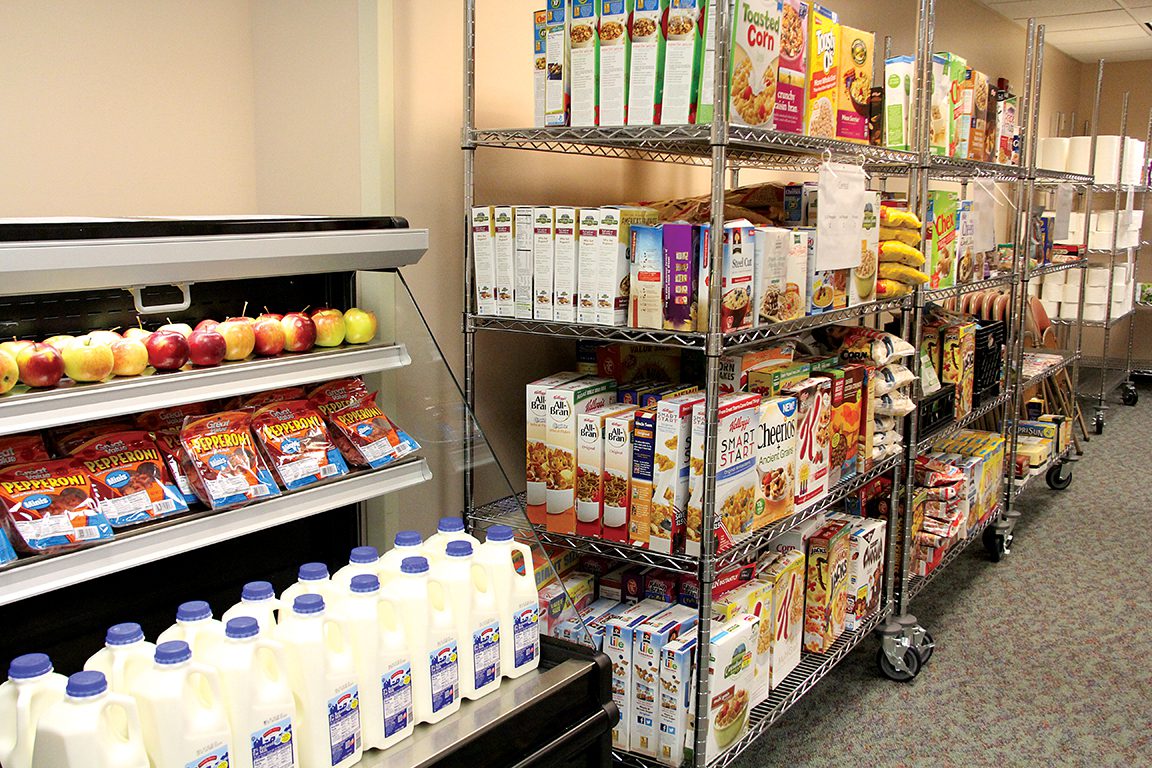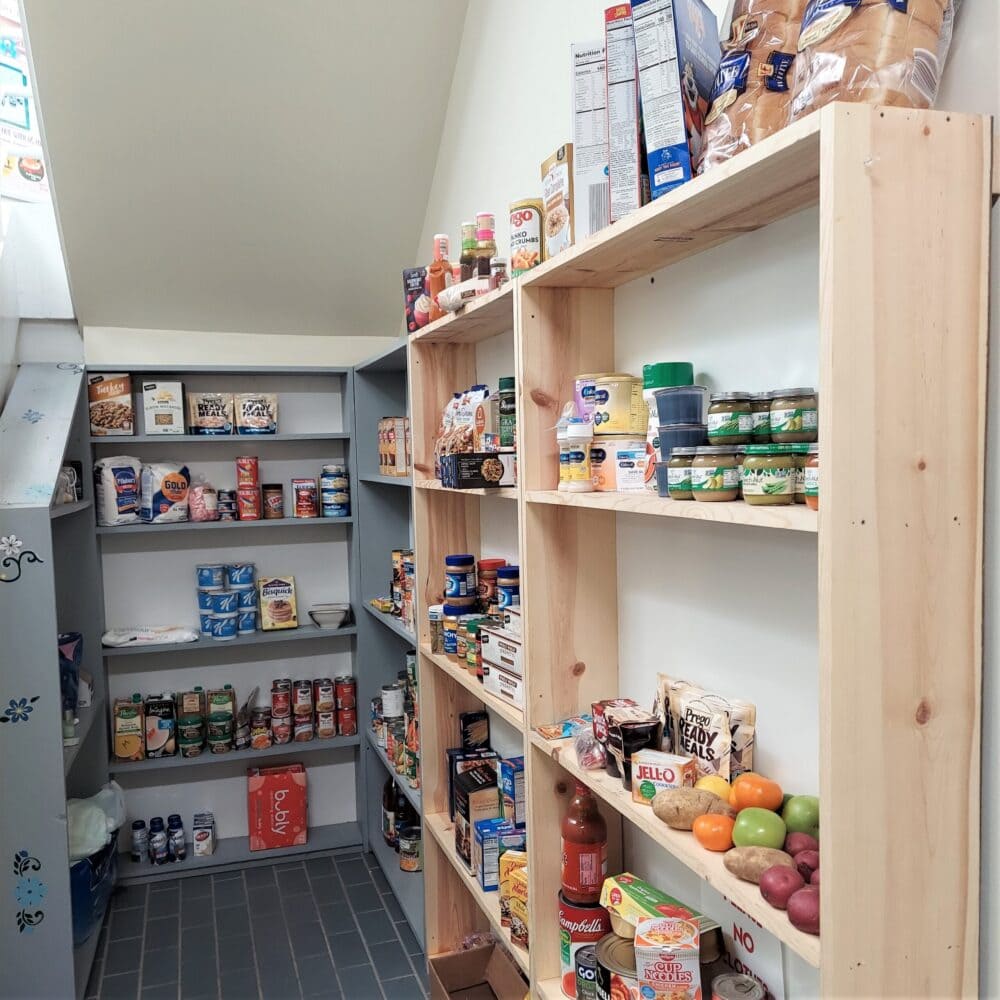Why Sustaining Your Local Food Pantry Is Critical for Assisting Those in Demand
The importance of supporting local food pantries can not be overstated, specifically in the context of food insecurity, which impacts a disconcerting number of individuals and family members within our areas. As we check out the complex role of food kitchens, it comes to be noticeable that their effect expands much beyond merely distributing food.
Comprehending Food Insecurity
Food instability influences approximately 10.5% of households in the United States, illustrating a considerable public wellness problem that transcends simple cravings. It describes the lack of regular access to adequate food for an energetic, healthy and balanced life. This problem can lead to a range of adverse end results, consisting of bad health and wellness, boosted medical care prices, and reduced scholastic efficiency amongst children.
The sources of food instability are multifaceted, frequently stemming from economic variables such as unemployment, underemployment, and destitution. Geographical place can also play an essential function, with food deserts-- areas with minimal access to affordable and nutritious food-- intensifying the issue - Food Pantry Lockhart. Furthermore, systemic factors, including racial and social injustices, add to the disproportionate effect of food insecurity on marginalized neighborhoods
Attending to food insecurity is not just concerning boosting food supply; it requires a detailed strategy that includes financial stability, education and learning, and neighborhood support. Food insecurity not just affects specific health however also has more comprehensive implications for social wellness and efficiency. Comprehending its complexity is vital for creating efficient treatments and cultivating long-term services that guarantee all individuals have trusted access to nutritious food.
The Duty of Food Pantries
Neighborhood food pantries function as important lifelines for families and individuals dealing with food instability. They give necessary food items to those that may struggle to pay for sufficient nutrition due to financial difficulty, unemployment, or unpredicted scenarios. By dispersing food at no cost, these companies assist relieve appetite and protect against the unfavorable health effects related to insufficient diets.
Food cupboards commonly companion with local farms, supermarket, and area companies to source a selection of nutritious food products, consisting of fresh fruit and vegetables, dairy, and proteins. This collaboration ensures that pantry clients receive not just food yet also much healthier choices that contribute to general health.
Furthermore, food pantries work as community centers, promoting links amongst citizens and offering a feeling of dignity to those in requirement. Lots of pantries supply additional resources, such as nutrition education and learning and referrals to social services, assisting customers browse their difficulties better.
Essentially, food pantries play a diverse duty in combating food instability. They not just address prompt appetite but also empower family members and people to improve their circumstances, consequently advertising neighborhood strength and communication.

Benefits of Supporting Food Pantries

Sustaining food pantries not only nurtures those in demand yet also enhances the material of the neighborhood. By providing necessary food sources, food pantries reduce cravings and reduce food instability, which is important for the health and health of individuals and family members. Accessibility to nutritious food adds to boosted physical health, far better instructional outcomes for children, and improved psychological health and wellness, thus promoting an extra efficient and engaged neighborhood.
Moreover, sustaining food pantries promotes social communication. These organizations act as hubs for community interaction, bringing with each other volunteers, donors, and receivers in a shared mission to combat appetite. This partnership can damage down obstacles, foster understanding, and click here for more develop partnerships amongst diverse neighborhood members.
Furthermore, contributions to food cupboards, whether in the kind of food, funds, or time, boost the local economic climate. Lots of food pantries prioritize sourcing from neighborhood manufacturers, thus supporting local farming and businesses. This produces a cycle of support that profits not only those in requirement yet the area all at once.
Just How to Obtain Entailed
Engagement with food kitchens can take many forms, enabling people and groups to make a purposeful effect in their communities. Monetary donations are additionally very useful, as they make it possible for food kitchens to purchase fresh fruit and vegetables and essential materials.
Offering your time is an additional impactful method to sustain local food cupboards. Many companies depend on volunteers for arranging, packing, and distributing food. This hands-on involvement not only helps the cupboard however likewise promotes a sense of community. Additionally, consider organizing food drives within your work environment, college, or neighborhood team to increase recognition and gather resources. click for more
Collaborations with local companies can further improve support for food pantries. Businesses can organize contribution occasions or add a portion of their sales to the pantry. Lastly, getting the word out with personal networks and social media helps to increase presence and urge others to add. By taking these steps, individuals and teams can considerably boost the initiatives of regional food cupboards and click to find out more help those in requirement.
Neighborhood Effect and Connection
Identifying the extensive influence of food pantries on neighborhood well-being is essential for cultivating a spirit of connection and collaboration. Food cupboards offer not just as vital resources for those encountering food instability but additionally as hubs for area engagement. They combine diverse teams-- customers, contributors, and volunteers-- developing an atmosphere where individuals can support and connect one an additional.
The impact of food cupboards prolongs beyond mere provision of food; they function as a stimulant for social cohesion. By participating in cupboard efforts, area members can develop partnerships that transcend socioeconomic barriers. This network of support helps to take down the stigma usually related to food support, cultivating an environment of approval and understanding.
As individuals join in their initiatives to support regional food kitchens, they cultivate a sense of common function and responsibility, reinforcing the concept that everybody has a role to play in making certain that no one goes starving. Inevitably, sustaining food cupboards strengthens the textile of the area as a whole.
Verdict
Supporting local food pantries is crucial in combating food instability and enhancing the well-being of prone populations. Involvement with food pantries fosters community links, promoting social cohesion and equity.
